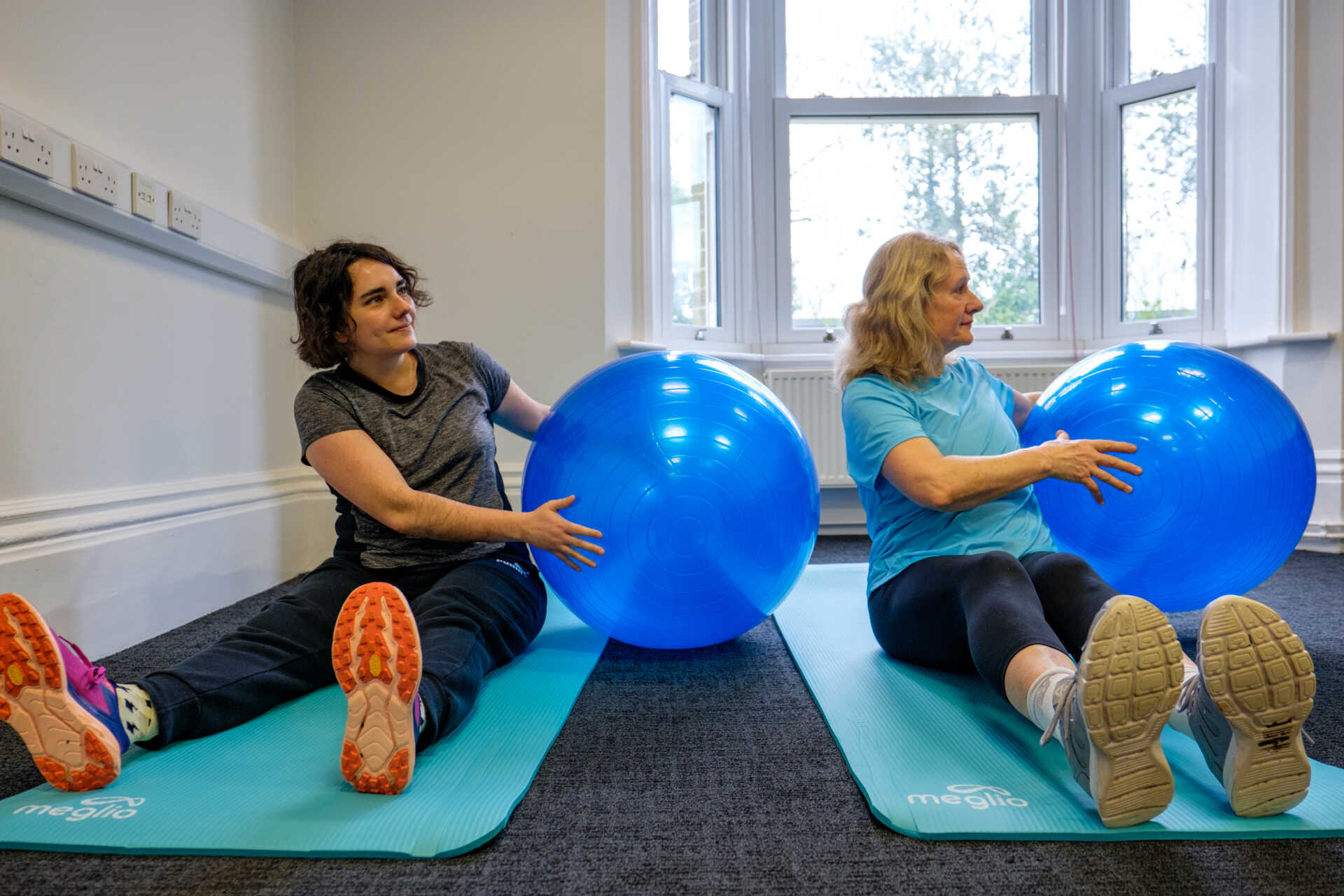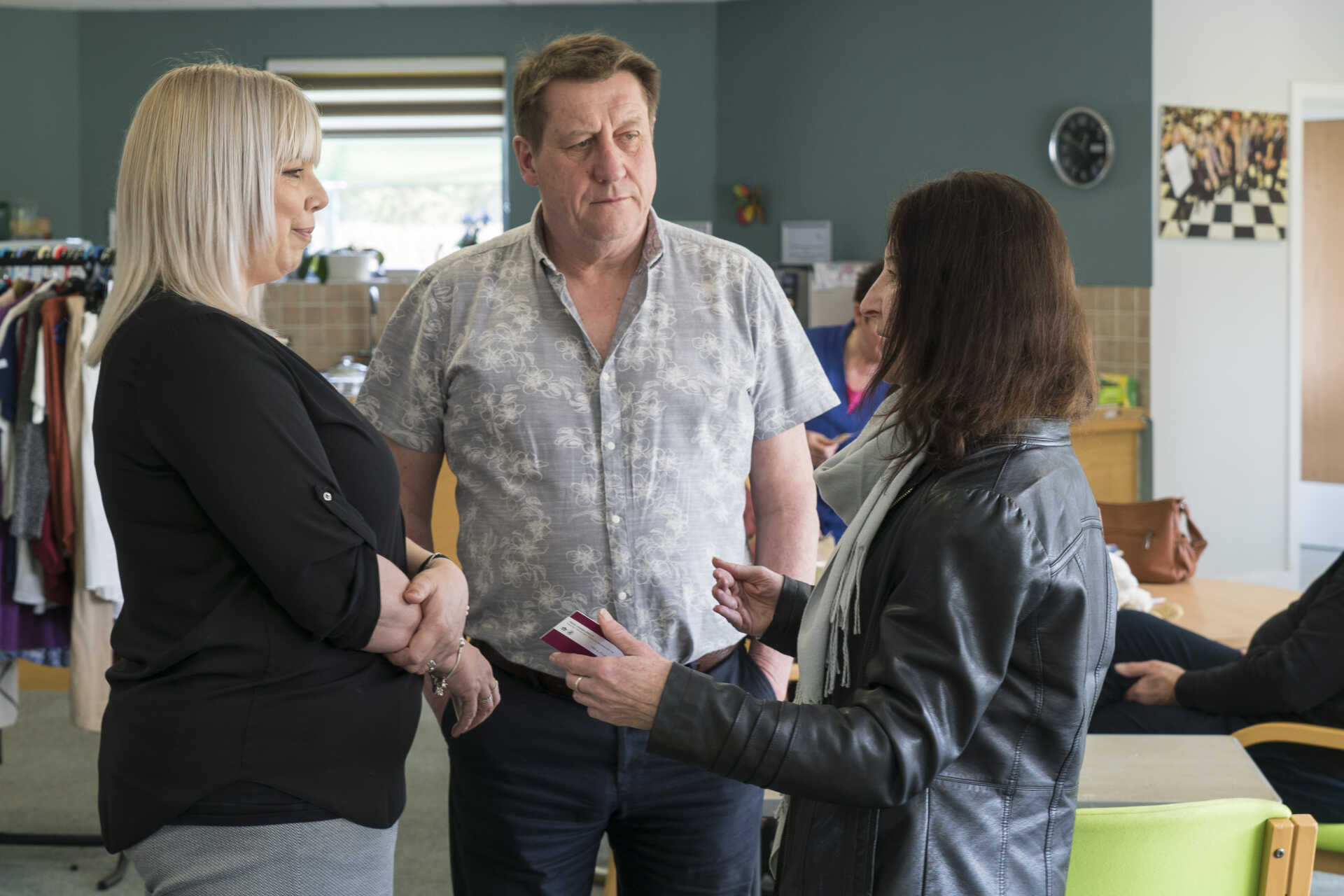
Learn more about our therapies on offer
We offer personalised care plans designed according to individual needs. Our Specialist Clinician will be on hand to answer questions, refer individuals to the appropriate therapists, and coordinate care plans.
All our therapies will be delivered by accredited practitioners with expertise and experience in the care of Parkinson’s disease.
1-1 counselling - Counselling provides a safe and confidential space for members to
talk to a trained professional about any issues and concerns they may
have. Counsellors help members explore their thoughts, feelings, and
behaviours so that they can develop a better understanding of themselves and
others.
Group Counselling - The group for people with Parkinson’s will help members to develop coping skills, strategies for when they may feel depressed or anxious. It can also deliver a listening ear at times when they are struggling to accept changes or feeling overwhelmed.
Group counselling helps members to look at what they can take into their new world from the old world and how they are able to move from one to the other whilst assisting them to explore and voice emotions related to this.
It provides opportunities for members to talk to others, compare coping strategies and discuss mutual support.
It also provides a confidential group space to explore thoughts feelings and behaviours without judgement providing the opportunity to safely explore risk, motivation, support networks and interpersonal connections
Some people with Parkinson’s disease may experience problems with speech, communication, and swallowing. The Parkinson’s Centre for Integrated Therapy offers voice therapy to members which focuses on improving voice loudness and helping with day-to-day communication.
During one-to-one weekly sessions we work on improving vocal loudness and intensity. We then carry this over into weekly group sessions.
Occupational Therapy is person centred therapy aimed at increasing participation in daily activities such as self-care, productivity, and leisure. Occupational Therapy can benefit people living with Parkinson’s through interventions tailored to specific activities and participation needs of the individual.
The role of Occupational Therapy role at the Centre is to assist people living with Parkinson’s to maintain their independence and support their participation in meaningful and purposeful daily activities. Support can also encompass ways to cope with the condition and provide wider support for family and carers to assist in promoting quality of life.
Singing is very beneficial for everyone’s health and wellbeing, and this applies even more for people with conditions such as Parkinson’s which often affects the strength of the voice and the ability to speak fluently. Singing can help mitigate the effects of the condition and is a great way of boosting the mood and health of people living with the day-to-day challenges of Parkinson’s and other conditions.
Canterbury Skylarks was set up in 2009 to establish a singing group for people with Parkinson’s and other similar conditions. Skylarks’ sessions are fun, informal, and uplifting – everyone who attends comes away feeling in better spirits. There is no need to be ‘good’ at singing to take part and benefit from the sessions! Skylarks comes under the umbrella of the charity Canterbury Cantata Trust, whose mission is ‘caring through singing’.
The group meets weekly, alternating online meetings via zoom with face-to-face sessions at the Parkinson’s Centre. The in-person sessions are in collaboration with Simon Langton Boys’ School – we are very lucky to be joined by 6th formers who really add to the sessions and the facilitator is the head of music from the school. The leaders of our groups (whether online or in person) are professional musicians who also have an awareness of the exercises and approaches that are particularly helpful for people with Parkinson’s.
Physiotherapy can be a vital tool at all stages of Parkinson’s. A neurological physiotherapist will complete a thorough assessment and propose a treatment plan led by the goals of the individual.
Physiotherapy can alleviate both motor and non-motor symptoms, as well as the emerging evidence that higher intensity exercise may be able to slow progression of the condition. A well-rounded exercise programme for people with Parkinson’s has many different elements including aerobic training, strengthening, balance, posture and dual tasking.
A physiotherapist can ensure all these areas are being targeted. A physiotherapist can also advise on movement strategies and exercise to assist in functional tasks such as walking and sit to stand, and strategies can be put in place to address challenges such as freezing. Physiotherapy aims to be proactive thereby maximising quality of life and ability.
Physio-led high intensity exercise class
– This is a higher intensity exercise class targeting key exercise requirements
for people with Parkinson’s. Emerging evidence shows the potential for vigorous
exercise to slow progression of Parkinson’s symptoms, although more research is
needed.
This class will give members the opportunity to work hard while incorporating Parkinson’s specific needs such as dual tasking and stretching, as well as power, amplitude, balance and aerobic exercise. The class is most suited to those who can exercise in standing for 60 minutes, however exercises will be adapted to attendees and can be modified to sitting as needed.
Low Intensity Exercise Class - Targeting key exercise requirements for people living with Parkinson's Disease, with a focus on purposeful movements and coordination, as well as cognitive and aerobic exercises.
Circuit Training "Use it, or Lose it" - A combination of 6 or more exercises performed with a short rest period between them. A great form of body conditioning that involves endurance, resistance, and aerobic exercise.
"Sit with Intensity" - A chair-based exercise is an excellent way to build strength, improve flexibility, increase blood flow and mobilise joints without putting too much strain on your body.
3x6= PURPOSEFUL,
POWER & PRECISION – 3
sets of
6 fun exercises. All exercises will be
big, coordinated movements. Learn the movement in the first set.
Add power and purpose in the second set . The final set will include
power, purpose and precision (all 3 P’s!) plus a cognitive challenge
to really tickle those neurons!

At the centre we will provide Information, advice, and signpost other resources to help you understand more about Parkinson’s disease and how to incorporate it within a rich, ‘lived’ life.